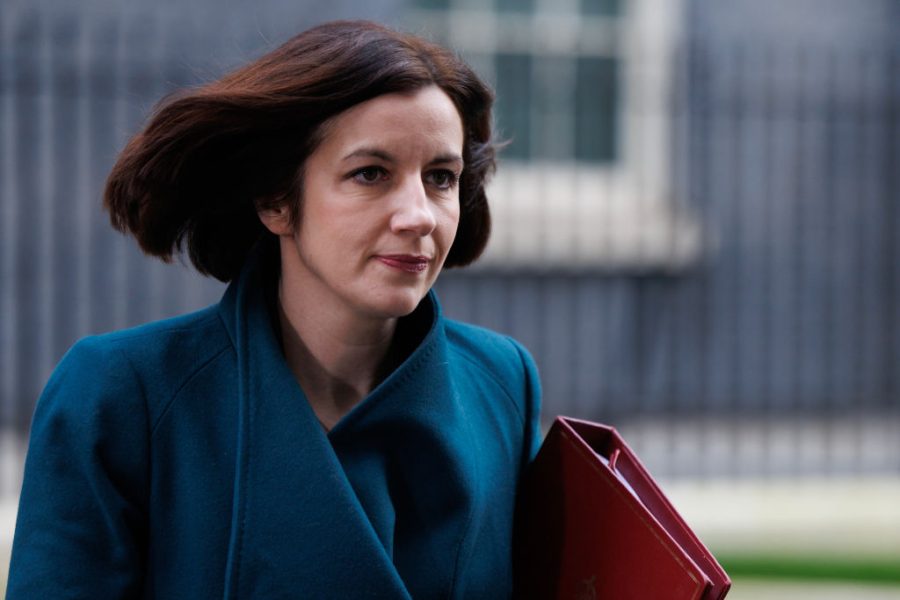Congratulations are due to the Education Secretary Bridget Phillipson. Not many ministers achieve much at all, let alone ticking off the core of their agenda within a year of taking office. But figures to be released this week, which show that over 13,000 children have had to leave private schools over the past academic year, are merely the latest confirmation that Phillipson is well on her way to achieving what she set out to do when she took office. Phillipson can already boast that she is the most destructive education secretary since 1979.
One assumes that has been her aim since being appointed last July, given that she has spent the past ten months doing everything in her power to destroy two of the most successful elements in British education – private schools and academy schools. It is, after all, difficult to discern any other purpose to the wrecking ball she has directed at both.
‘Worse’ is, of course, a subjective term. For Phillipson this must be seen as a huge success
Credit where it is due, Phillipson is a skilled saboteur. In opposition, there were any number of flattering profiles portraying her as the bright, modern face of Labour. In office she has sought to maintain that image, whilst in reality pursuing policies straight out of a well-thumbed guide to the 1970s, the last era when an education secretary deliberately set out to destroy good schools. Back then it was Shirley Williams, whose mission was to finish off grammar schools. For Phillipson, it is private and academy schools which are the target.
To recap: one of the government’s first actions was to impose VAT on school fees, which came into effect in January. The effect is (and was always going to be) undeniable, despite Phillipson’s repeated attempts to do just that. The government produced figures estimating that only 3,000 or so pupils would leave the private sector during the 2024-25 academic year – a figure which turns out to have been wrong by around 10,000, according to the annual census by the Independent Schools Council (ISC) of its 1,380 members. With fees having increased by more than 22 per cent on average (an extra £4,000), that was always going to happen.
It’s not just VAT. The removal of charitable business rates relief, the rise in employers’ national insurance contribution rates and the rise in pension contributions have created a perfect storm for the achievement of Phillipson’s ambitions.
And next year’s figures will be much worse, as many parents have scrambled to somehow keep their children in their school until the end of this academic year, rather than yank them out now and immediately disrupt their education with new exam boards, different GCSE and A-Level subjects and different teaching.
‘Worse’ is, of course, a subjective term. For Phillipson this must be seen as a huge success, since she has clearly set out to do as much damage to private schools as possible. Far fewer pupils will now be enrolled at the start of their school careers, as parents recoil from the higher fees. And what a brilliant idea it has been to force state schools to take on so many extra pupils, many with special educational needs and disabilities (Send) needs. It’s not as if state school budgets are under pressure, eh?
The bigger, more established private schools are finding ways to cope as they look elsewhere for pupils, but the impending collapse of many smaller, often more specialist schools – such as those which cater for Send pupils – means it’s probably time to crack open the champagne in Phillipson’s office.
As for academy schools: Phillipson has managed in a few months to undo thirty years of consensus which saw devolving decision-making and responsibility away from the centre and local authorities to schools themselves, most obviously through academy schools funded directly by government, driving state school standards ever higher. That consensus was opposed throughout by the teaching unions and their ideological bedfellows – of which the Education Secretary is one.
The OECD’s Programme for International Student Assessment (PISA) tests show the extent of that improvement, which is made even clearer in comparison with Scotland and Wales. Between 2009 and 2022, England went from 21st to 7th in the PISA league table in maths, while Wales went from 29th to 27th. England went from 19th to 9th for reading, and Wales stayed 28th. England went from 11th to 9th in science, and Wales fell from 21st to 29th. And although Scotland went from 12th to 9th in reading, it fell from 15th to 25th in maths and from 11th to 26th in science.
What was different in Scotland and Wales? They resisted the reforms from which English schools have benefitted over the past decades. Now, Phillipson is pursuing the end of the academy freedoms which have powered English performance and the adoption of Welsh and Scottish-style centralisation. She has a special genius for destruction.
Academy schools are currently able to hire staff who do not have qualified teacher status, and they are allowed to diverge from the national curriculum. Under Phillipson’s Children’s Wellbeing and Schools Bill, it will be illegal from September 2026 for schools to employ anyone without a teaching qualification or to depart from the national curriculum. The Bill also repeals the requirement to turn failing schools into academies, which has been pivotal in transforming them from disasters into exemplars.
Phillipson’s Bill also gives the Secretary of State wide overall powers to order academies to act as she sees fit on any subject of her choosing, where she believes a school ‘has acted or is proposing to act unreasonably with respect to the performance of a relevant duty’. This includes, as the Bill spells out, an academy trust’s school uniform policy or how it deals with parental complaints.
So congratulations to Phillipson. She set out to destroy, and she is a long way towards achieving her goal.







Comments